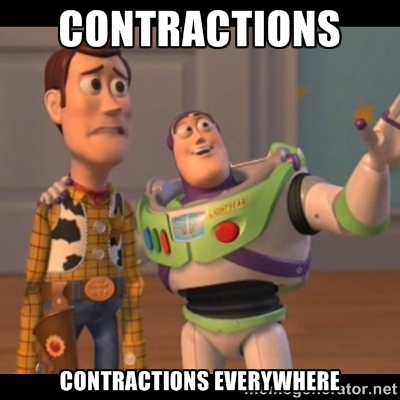Why should you avoid them? Slang can mean different things to different people, so it may not be comprehended the way that you intended it to be. Also, slang is very informal. It can show a laziness or a lack of effort by using slang. Lastly, it is boring! There are over a million words in the English language so I guarantee that you can find a more interesting word than a slang term.
1. “Like”
This word is bland, humdrum, and dull. There is absolutely nothing exhilarating about it. To say that you “like” something or your roommate likes something is meaningless. Great, who cares?! But if you or someone else really has an opinion, express it! Make sure that you use words to get the opinions and feelings across to the reader.
2. “Thing”
This is the least specific word in the English language. Your reader has no clue what you are referring to when you use it. Be specific!!
3. “Kids”
I remember my 6th grade teacher complaining about this word, and it has stuck with me. But I am not the only one that feels like this. They are “children,” “teenagers,” etc; give them some credit! Just choose a more specific and less demeaning word. (Unless, of course, you are talking about baby goats. Then, by all means, use “kids.”)

4. “Ripped off”
If your brother ripped off his shoes before jumping in a pool, go ahead and use this phrase. However, if your brother got ripped off because he was not given the correct change at the grocery store, use a different phrase. This is slang and sounds sloppy when it is used in a paper.
5. “Awesome”
This word is so overused that it has become almost as meaningless as “good.”
“Did you have an awesome time? Did you drink awesome shooters, listen to awesome music, and then just sit around and soak up each other’s awesomeness?” -Mean Girls
6. “Always/Never”
Really? Because I guarantee that someone could prove you wrong most of the time. Very few phenomenon always or never happens. So, use a more realistic term in your writing if there is a slight chance that it may actually happen.
7. “Good”
Pizza is good. A book is good. But if it is good enough for you to write a paper about, you should use a more descriptive and exciting word!

8. “Very”
This is often an over exaggeration and is used as a way to express an emotion that is not nearly as strong as you make it sound.
9. “The use of contractions”
This was one of the first rules I learned when I began writing. Do not use contractions. Let me repeat: NEVER USE CONTRACTIONS IN FORMAL WRITING! Contractions are a short cut. If you use a contraction in your paper, you might as well say to your professor that his or her paper is not worth your time to write out entire words.

10. “First, Secondly, finally, in conclusion, lastly,” etc.
Your readers can count. They know that it is the first paragraph or the second paragraph by counting the paragraphs. Also, they know you are concluding your paper because it stops after your paragraph. Do not tell them things that they can figure out on their own.
-Adrienne, Peer Tutor